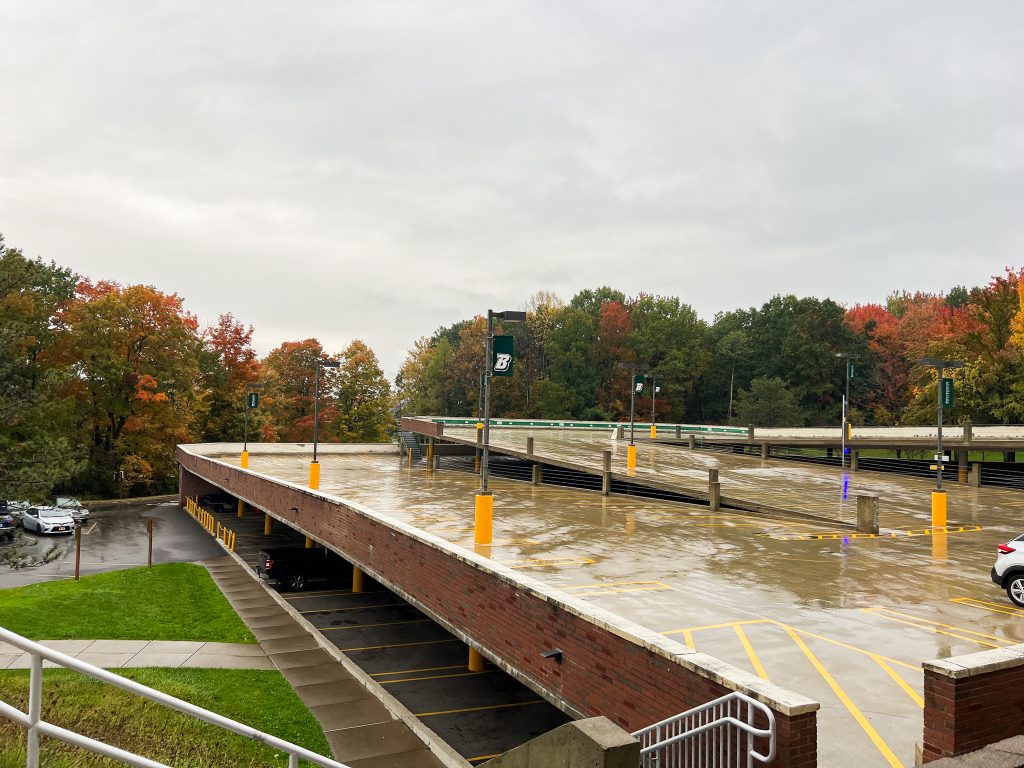A carpooling initiative has worked to improve access to on-campus parking while promoting more sustainable means of transportation.
The program, offered by Transportation and Parking Services, is open to students, faculty and staff with a valid parking permit. During the hours the information booth — located at the entrance to campus on Glenn G. Bartle Drive — is open, any vehicle with at least three passengers can receive free access to the visitor’s paid lot and parking garage. Participating students with parking passes are also eligible for a rebate — if a student carpools 35 times throughout the academic year, they can receive a $25 reimbursement.
“TAPS has offered this carpooling incentive for over 5 years to encourage carpooling,” Meghan Schofield, the service’s assistant director of marketing, wrote in an email. “Carpooling decreases the number of trips taken to and from campus while also decreasing the amount of vehicles on campus.”
Mackenzie Cooper, the BU Council representative and a senior majoring in philosophy, politics and law, is working with administrators to expand parking on campus and to promote initiatives like the carpooling program. She said that while she understood other campuses have larger parking issues, students are still frustrated about a lack of parking availability on campus.
Cooper said she only recently learned about the carpooling initiative following a conversation with Pamela Mischen, the faculty advisor to University President Harvey Stenger and the University’s chief sustainability officer. Finding that many other students were also unaware of the program, she said she hopes to better communicate the availability of similar initiatives.
“I think there’s definitely a large disconnect between [administration] initiatives and the student body, and in my role as the council representative, it is my duty to continue to inform on the great things that we’re doing on this campus,” Cooper said.
Using her social media page and in-person announcements to promote the program, Cooper expects it will significantly impact students on campus. She described its benefits, including more parking spaces.
“I think that this is definitely going to encourage carpooling and collaboration among the student body,” Cooper said. “I think that the parking garage is a central location on campus and is a great place to park, and to be able to have access to that space is going to be something that I hope students take full advantage of.”
She added that the program would help foster sustainability on campus, as carpooling decreases the number of cars on the road and, by extension, the emissions produced by these cars.
In the wake of increasing student admissions, on-campus parking access has been an ongoing issue. The University welcomed approximately 18,600 students to campus this fall, continuing years of growth in the student body.
“We promote this and other TAPS programs every year, as there is a whole new cohort of students to introduce our programs and services to,” Schofield wrote. “Also, with the completion of the Welcome Center, the Information Booth is easily accessible, making this program convenient.”



